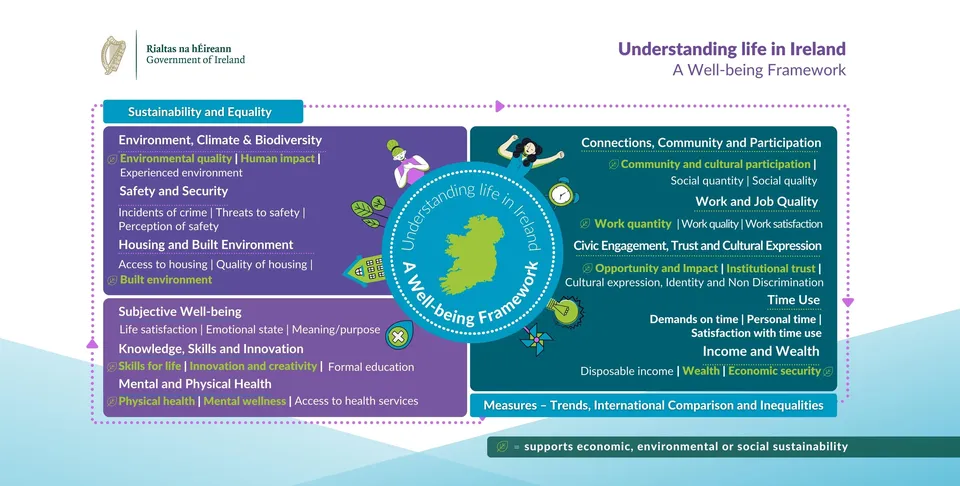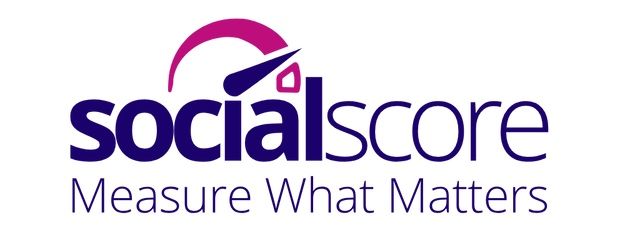Health and Wellbeing: The Social Value Imperative for Irish Business
Traditionally ideas of health and wellbeing have been seen as something personal and private. Personal fitness, social connections, medical check-ups or self-care are all seen as something that is managed outside the workplace and as something you do in your own time, if, and when you can.
But the truth is that wellbeing is often about lifestyle and therefore is a shared responsibility, particularly within small and medium-sized enterprises where the health of employees directly shapes the health of the business on a daily basis.
Any leader knows that thriving team drives productivity and reputation, making health is a business imperative, where the wellbeing of staff is inseparable to wellbeing of a business itself.
How is health a business matter?
This doesn’t mean that supporting wellbeing isn’t an act of kindness, or a nice to have, but it can also be a strategic business decision that is a measurable act of social value, providing clear business benefits.
However, understanding what is meant by health and welling in the workplace can feel as complex as understanding social value itself.
Workplace conversations show that for some staff health is about counting steps or tracking achievements, whilst for others, it may be prioritising mental health or keeping up with ongoing medical appointments and advice.
So, given this breadth, how is health a business matter? And how does it fit into social value?

It’s about the people
Social Value is about the positive impact your organisation creates for people, communities, and the environment, and that includes your own team.
As staff performance is the foundation of any business performance, it is obvious that staff health is the real asset of the business.
Whilst that might also impact on their families, friends and communities, visibly supporting health and wellbeing, in all its forms, creates a culture and a business identity that attracts prospective clients and that customers notice.
It’s a win-win for business as the disruption of lost working days can really impact a team or across a small business.
Wellbeing is the advantage
Any company making changes that are positively investing in wellbeing of their people will ultimately see where clear returns for the business can be created.
Even the smallest of changes matter. A lunchtime walk, team volunteering day, or skills workshop all contribute not just to healthier people, but to a healthier business — one that values its people, strengthens its culture, and can evidence its positive impact in a language that buyers, funders, and clients understand.
Whether it’s policy changes, or changes in the spaces and places of a working environment, happier and healthier employees are much more likely perform better and stay longer.
Ireland’s National Well-being Framework
Ireland’s National Well-being Framework has an overarching vision of “enabling all our people to live fulfilled lives now and into the future” which is rooted in a desire to make people’s lives better.
It does this by considering and measuring progress as a society with an overarching focus on equality and sustainability. It identifies 11 interconnected dimensions of well-being:
Income and wealth; housing; work and job quality; health; knowledge and skills; environment, climate and biodiversity; safety and security; Community Social connections and cultural participation Civic engagement Time use Overall subjective well-being.
Each dimension is tracked through a set of measurable indicators to inform policy, budgeting and evaluation. For those working in social value reporting, the framework provides a ready-made structure for demonstrating impact: it enables organisations to map their outcomes—such as skills development, health improvement, community engagement or environmental gains – against these and consider the contribution they are making.
This is where health & wellbeing moves from being a “soft issue” to a strategic advantage
By recognising the power of social value, investing in staff health is an investment in the long-term success of your business and can be create business advantage in procurement.
Creating the advantage: where to start
Crucially, this doesn’t need to mean costly programmes. Many impactful actions are low-cost but high-return – from encouraging staff to take lunch breaks outdoors, to creating peer-support networks or signposting to local wellbeing resources.
Adjustments such as flexible working, access to fresh air or green spaces, or even healthier catering options, can mean that staff are able to schedule their health appointments and check-ups, take a break in nature to step away from their desk.
A healthy business is one that thrives from the inside out: productive, reputable, and ready to compete for opportunities, recruit the right people and retain them; its where social value truly counts.
Win–Win
Prioritising health and wellbeing throughout the workplace demonstrates social value in practice. Ultimately, health is both personal and professional but supporting health at work is strategic.
If you want to know more -”measure what matters with SocialScore”- the digital platform that helps businesses and organisations measure, record, and showcase the social value of their work.







Leave A Comment